#gallic empire
Explore tagged Tumblr posts
Text

François Emile Ehrmann (French, 1833-1910) Vercingétorix appelant les Gaulois à la défense d’Alaise, 1869 Musée d'Art Roger Quillot, Clermont-Ferrand
#gauls#germanic tribes#franks#art#french#spanish#rome#brittania#germanic#fine art#european art#classical art#europe#european#fine arts#oil painting#europa#mediterranean#1869#1800s#barbarians#german#world history#western civilization#western europe#southern europe#italy#gallia#gallic empire
52 notes
·
View notes
Text
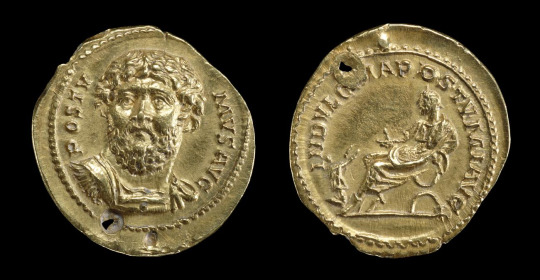
Beautiful Aureus featuring a rare 3/4 Facing bust of Postumus, reverse features Postumus seated, suppliant before him.
75 notes
·
View notes
Text
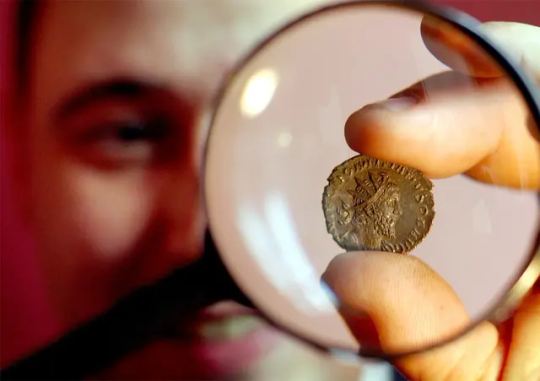
Coin reveals little-known Roman ruler
Treasure hunters have unearthed a coin bearing the head of a virtually unknown Roman ruler who briefly held power in Gaul around A.D. 270 as the empire teetered.
It is only the second coin ever found showing the head of Domitianus, who seized power — and the mint — in the breakaway Gallic Empire, which included modern England, France and parts of Germany and lasted for 15 turbulent years.
“We know next to nothing about Domitianus, except that he was ‘punished’ by the Roman Emperor Aurelian for treason,” Richard Abdy, curator of Roman coins at the British Museum, told Reuters. “But at least now we know what he looked like.”
Studied by coin experts
The first coin bearing Domitianus’ head was found in the Loire area of France in 1900, dismissed as a fake because his name was unknown and then lost from sight in a small museum in Nantes until very recently.
“It is now being studied by numismatists. When I showed our coin to the woman who has been working on it she jumped for joy because it bore out everything she had said about hers,” Abdy said, noting the French coin had been dated to A.D. 271.
The Gallic Empire was established in 260, when rule from Rome was weakening, by Postumus. He was succeeded nine years later by Marius, who held the throne for a matter of weeks before being strangled and in turn replaced by Victorinus, who ruled until 271 when he too was murdered.
Domitianus is believed to have murdered Victorinus, who had a habit of raping the wives of his subordinates, before himself being ousted by Tetricus. Tetricus ruled from 271 to 274, when he was defeated by Aurelian and the empire was restored.
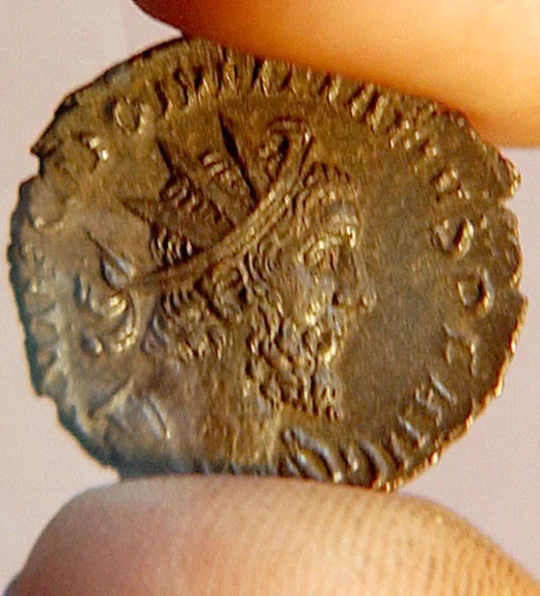
Found on farmland
The British coin, which goes on show at the British Museum starting Wednesday, was found on farmland near Oxford just under a year ago as part of a hoard of 5,000 Roman coins fused together in an earthenware pot.
“It is a type of coin we know as a ‘radiant’ because there are rays radiating from his head. It is a two-denarii piece, which at that time, when they were coining money as fast as they could, would have been worth a couple of hours’ work,” Abdy said.
The base metal coin, which originally had a surface coating of silver, is now conservatively estimated to be worth a five-figure sum, Abdy said.
At the time it was minted, the once-mighty Roman Empire was undergoing a period of intense flux.
The years between 270 and 285 were marked by chaos in the empire, with more than 20 different emperors and 30 different pretenders fighting for power. Only one of these leaders died a natural death.
By Jeremy Lovell.
Original posted Feb. 24, 2004.
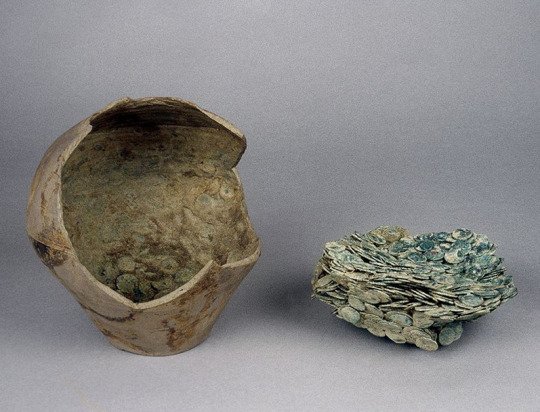

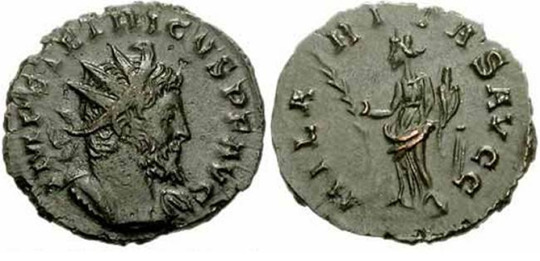
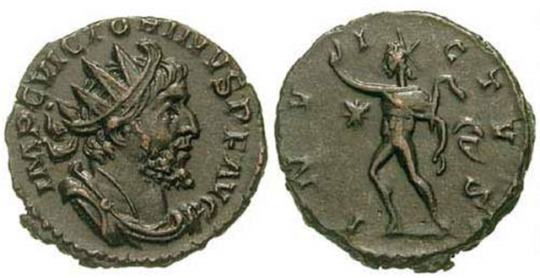
The Coin Hoard
Until this discovery was made some scholars doubted the historical significance of Domitianus who is named just twice in the historical sources. The Oxfordshire coin provides archaeological evidence suggesting that he successfully proclaimed himself emperor of a breakaway part of the Roman Empire during the reign of Aurelian (AD 270-5).
Richard Abdy (Curator of Roman coins at the British Museum) said that ‘during the 270s AD the fabric of the Roman Empire had become strained. Breakaway empires, like the so-called ‘Gallic Empire’ that included Britain, were established and ruled by a succession of rebel emperors. Finding a coin produced in the name of Domitianus means that he should now be recognised as one such rebel emperor.’
The failure of Roman writers to identify him as a rebel emperor even led the only other coin of Domitianus – found in France in 1900 – to be dismissed as a modern fake. The new discovery was struck from the same dies that were used to produce this earlier find and has therefore put its authenticity beyond any doubt.
Ian Leins (Finds Adviser, Iron Age and Roman coins, Portable Antiquities Scheme) said ‘the portrait on the new coin very closely resembles that of the rebel emperors Victorinus and Tetricus. It is highly possible that other coins of Domitianus exist in the collections of museums and individuals but have escaped detection. It is important that people start to pay more attention to these often neglected finds and record them with their local Finds Liaison Officer.’
#Coin reveals little-known Roman ruler#coins#collectable coins#roman coins#rebel emperor#Domitianus#Gaul#Gallic Empire#Aurelian#ancient artifacts#archeology#archeolgst#history#history news#ancient history#ancient culture#ancient civilizations#roman history#roman empire#roman emperor
62 notes
·
View notes
Text
Coin of the Day #106 (8/18/2024)
I’m probably just going to keep picking from this bag, there’s so many nice ones…
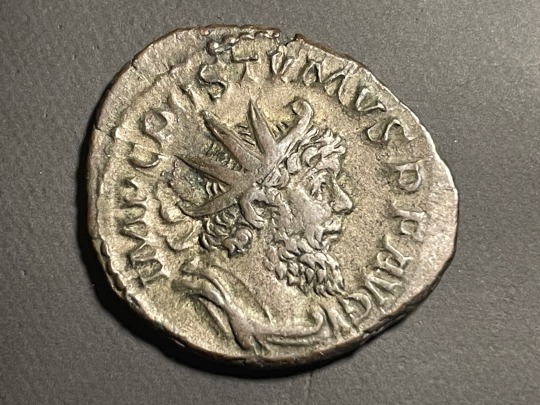
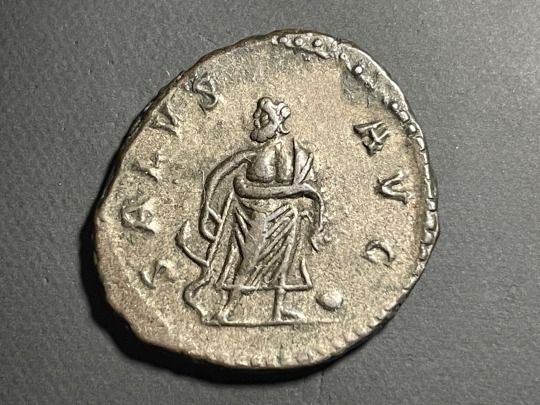
Roman Splinter State - Gallic Empire
BI Antoninianus - 22mm 4.33g
Postumus 266-267 AD
Treveri Mint
Obverse IMP C POSTVMVS P F AVG
Bust of Postumus right, radiate, draped, cuirassed
Reverse SALVS AVG
Aesculapius (Asclepius) standing right, head left, leaning on serpent staff, globe at feet
Mairat 348
#coin of the day#roman empire#gallic empire#third century crisis#Postumus#roman coins#coin#coins#numismatics#ancient rome#ancient coins#ancient gaul#gaul#treveri
10 notes
·
View notes
Text
it's midnight but can we PLEASE talk about the use of Greek and Roman mythology in TBOSAS and what it means for each of the characters !!
Ex. Sejanus: Roman soldier, friend and confidant of the Roman Emperor Tiberius until his execution for treason in AD 31
#this is all my brain is thinking about#as a percy jackson AND hunger games kid this is V E R Y important to me#the ballad of songbirds and snakes#the hunger games#diana and apollo as twins??#Juno????#lysistrata is a greek comedy about war?????#gaul?? as in the roman gallic empire??#ARACHNE??? HOUSE OF HADES WHO??#i can talk about this for hours#(and i will)
32 notes
·
View notes
Text
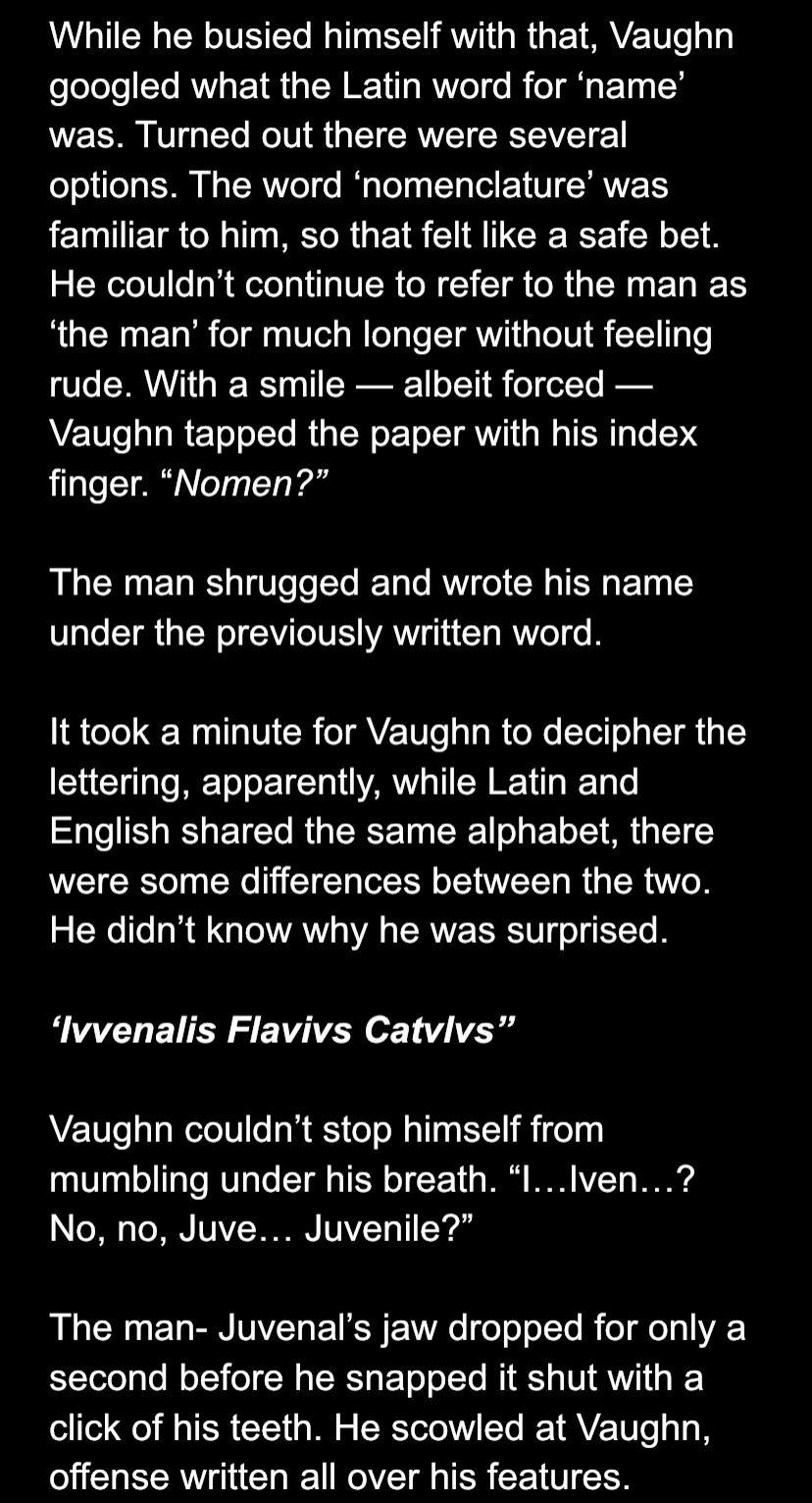
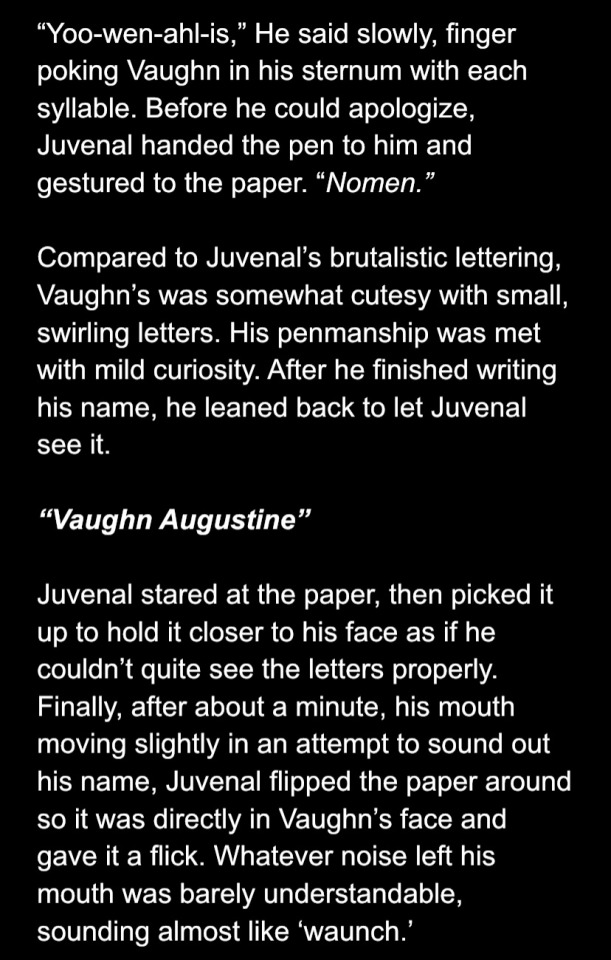

names are hard
#out of sight out of time#juvenals name is actually juvenalis but vaughn may be stupid#theres a reoccurring bit thru the book where juvenal keeps trying to get vaughn to call him by his nomen and not his praenomen#because thats reserved for only VERY close friends and family#but vaughn just never hears him or juvenal gets interrupted#for those who dont know#juvenalis is his praenomen#flavius is his nomen or his family name and thats what hes generally called back in rome#and catulus is his cognomen which i may or may not keep#vaughn just saw whatever name came first and was like oh yeah ok thats his name lol#ALSO. vaughn has THE MOST gaul name juvenal has ever heard in his life#he doesnt know what sound ‘gh’ makes my classicist friend said hed probs read it as a ‘ch’ sound#if ur curious what time period juvenals from in the roman empire he got time traveled a year before caesar crossed the rubicon#he was in caesars legions during the gallic wars or whatever so he lowkey thinks vaughn is The Enemy#IDK IF U HAVE ANY QUESTIONS ASK ME I LOVE TO YAP#breaks almost over. NOOOOOOO#oosoot snippets
4 notes
·
View notes
Text
no hate to Vercingetorix (love u bestie), but if i were at the Battle of Alesia 52bc, i would simply ask Caesar to Chill™
#history#shitpost#vercingetorix#Caesar#julius caesar#roman empire#Gallic#ancient celts#celtic rage#celtic#celts#battle#battle of alesia#52bc#this is not to be taken seriously#sca#scadian#calontir#ancient history
6 notes
·
View notes
Video
How Did Julius Caesar Change the Course of History?
#julius caesar#roman history#ancient rome#roman empire#gallic wars#historical figures#military strategy#roman politics#roman civil war#crossing the rubicon#caesar assassination#historical impact#leadership#ancient world leaders#world history#educational history
0 notes
Text
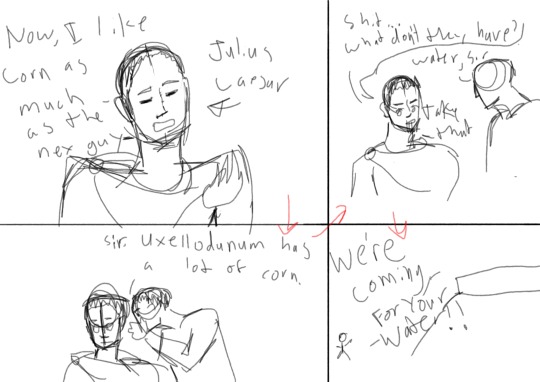
I made a comic after finishing the Gallic Wars, because I can and I thought it was funny.
Script: Caesar: Now, I like corn as much as the next guy-- Person: Sir, Uxellodunum has a lot of corn. Caesar: shit... what don't they have? Person: water, sir Caesar: take that. Stick Figure Caesar: WE'RE COMING FOR YOUR WATER!!
#gallic wars#julius caesar#roman empire#the original idea was more a corn joke#but then I forgot which city ran out of corn first#it was originally gonna be caesar mocking that city for running out of corn
0 notes
Photo
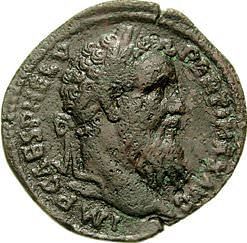
Pertinax
Pertinax was Roman Emperor for three months in 193 CE and, as successor to Commodus, it was hoped that he would restore much needed sobriety to the office of emperor. However, the former teacher, as well as putting in order the affairs of state, also embarked on a series of state spending cuts which led to his general unpopularity and eventual downfall at the hands of the Praetorian Guard.
After the assassination of Roman Emperor Commodus on December 31, 192 CE, the empire's throne was left vacant. As in the past - such as in the death of Emperor Caligula - the choice of a successor fell to the Praetorian Guard. Since there were no familial candidates, they chose a former teacher and military commander, Publius Helvius Pertinax. Unfortunately, his lack of skill in appeasing those around him (such as the Senate, the Guard, and the citizenry) would bring about his demise. After only eighty-seven days on the imperial throne, he would be dead. In his Roman History, Cassius Dio wrote, “Pertinax was as excellent and upright man, but he ruled only a very short time, and was then put out of the way by the soldiers.”
Early Life
Pertinax was born on August 1, 126 CE at Alba Pompeia in Liguria to a freed slave Helvius Successus; his mother's name is unknown. He led a truly 'rags to riches' story as his father went from slavery to success and wealth in the wool trade, allowing his son to receive a classical education which, in turn, permitted Pertinax to lead a quiet and uneventful life as a teacher of grammar. However, in 161 CE, at the age of thirty-five, he tired of the low pay and left teaching to enter the military.
Although he had no previous military experience, his education and family's money granted him the luxury of becoming the commander of a small legion of Gallic soldiers in Syria. His unique ability as a leader did not go unnoticed by those around him, and he quickly became a tribune stationed at York. Later, he fought alongside the future emperor Marcus Aurelius on the Danube frontier. Despite some early friction, his close ties to Marcus Aurelius eventually helped him become a senator, a consul in 175 CE, the governor of Dacia and later Syria in 181 CE, and prefect of Rome in 189 CE.
Continue reading...
33 notes
·
View notes
Text
Fox Mulder Playlist
"You're my one in five billion."
Fox Mulder Masterlist | The X-Files Masterlist | Main Page Masterlist




A/N: Could also be interpreted as 'Being in Love With Fox Mulder'. You guys, I don't think you can understand the amount of yearning I feel for this man. He's already shot up to number two on my list™ and is probably going to get promoted to #1 if I write for him. I'm going to throw up because I love him so much.
Fox On The Run // Sweet
Fox on the run; you scream and everybody comes a-running; take a run and hide yourself away
Spooky // Dusty Springfield
You always keep me guessing; I never seem to know what you are thinking
Psycho Killer // Talking Heads
I can't seem to face up to the facts; I'm tense and nervous and I can't relax
Light My Fire // The Doors
The time to hesitate is through; no time to wallow in the mire
The Killing Moon // Echo & the Bunnymen
Fate; up against your will; through the thick and thin
Pretty Girls Make Graves // The Smiths
I could have been wild and I could have been free; but nature played this trick on me
The Adults Are Talking // The Strokes
They've been saying you're sophisticated; they've been complaining overeducated; you are saying all the words I'm dreaming
Fade Into You // Mazzy Star
I wanna hold the hand inside you; I wanna take the breath that's true
Vampire Empire // Big Thief
I see you there, rejecting all your earthly power; protecting and dissecting 'til you've emptied every hour
Lover, You Should've Come Over // Jeff Buckley
Too young to hold on; and too old to just break free and run
Cherry // Lana Del Rey
Love; I said real love; is like feelin' no fear
No. 1 Party Anthem // Arctic Monkeys
The look of love, the rush of blood; the "She's with me" is the Gallic shrug
The Night We Met // Lord Huron
I am not the only traveler; who has not repaid his debt; I've been searching for a trail to follow again; take me back to the night we met
Sailor Song // Gigi Perez
Oh, won't you kiss me on the mouth and love me like a sailor?; And when you get a taste, can you tell me what's my flavor?; I don't believe in God, but I believe that you're my savior
Everlong - Acoustic Version // Foo Fighters
And I wonder; when I sing along with you; if everything could ever feel this real forever; if anything could ever be this good again
#txf#fox mulder#dana scully#fox mulder x reader#fox mulder x you#the x files#x files#agent mulder#agent fox mulder#playlist#msr#sculder#mulder x scully#scully x mulder#txfedit#fox william mulder#dana katherine scully#mulder#scully#mulder and scully#agent scully#spooky mulder#spotify
44 notes
·
View notes
Note
Hi, You have got into Roman history a lot lately would you mind recommending some books or any other sources you use to study for your art pieces? I love your art and funny personality. You are amazing. Only if you have time! Thanks in advance.
omg absolutely!! i’m getting a minor in classics with my english major (my evil evil english major 🙏) so i get most of my info from ancient sources such as:
plutarch’s parallel lives, caesars gallic war and civil war accounts, cicero’s letters (you’ve got to read cicero’s letters he’s so funny), cicero’s speeches/philosophical works (rn i’m reading the tusculan disputations and they’re great), cassius dio’s roman history, suetonius’ 12 caesars etc.
of these ones only cicero and caesar were writing directly during that time (the late republic) while the others are later accounts
then for contemporary sources, i’ll be honest my first intro to the romans was a crazy long textbook called “the romans from village to empire” but that very much reads like a textbook and its rlly more for a classroom setting, so i’d start with tom hollands “rubicon” to get into it in a more narrative format
after that there is one book that was really formative of my knowledge about the late republic and that is Christian Meier’s “Caesar” biography, it can seem a little daunting at first but it is extremely well written and it gives a great examination on the overall political/social climate of the time (also it made me cry a bunch it’s such a beautiful book), it was recommended to me by my latin/roman history prof (just make sure u get the english translation unless u can read german) this is quite literally one of the best books i have ever read period tho as well
i’ve also read anthony everitt’s “Cicero” bio which is quite popular and which i enjoyed and goodman and soni’s “rome’s last citizen” which is a contemporary bio of cato the younger, most recently I read seagars bio of pompey which I thought did a good job of expressing the contradictory nature of both his need for veneration from the senate and people and his need to assert himself to continue to gain this veneration (which made him feared by the political order because of the power he possessed)
I like pompey quite a bit so i’m pretty sympathetic to him bc i just think it’s so sad that he was fighting his whole life to gain a kind of trust from the senate that was simply not possible, and he twisted and turned in a bunch of different ways attempting to achieve this until his death (but that’s just a little off topic thing abt why im fascinated by him)
overall i think starting with rubicon and paring it with cicero’s letters to atticus (i read the loeb classical library translation bc i get it through my school but there are publicly available online translations too!) is a good place to start!
also thank you so much for loving my art!! and thank u for finding me funny omg ur so sweet!! i’m so glad it’s made you curious abt the romans they’re so great and awful and wonderful and horrible 🫶 i hope you have lots of fun reading abt them and id be happy to answer any other questions abt them to the best of my ability!
11 notes
·
View notes
Text
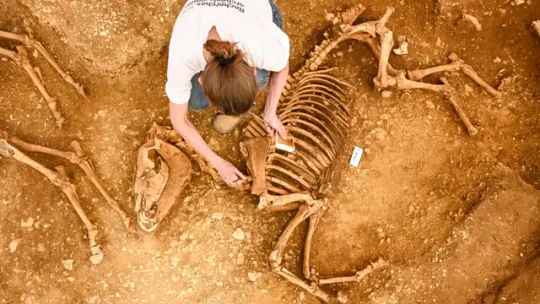
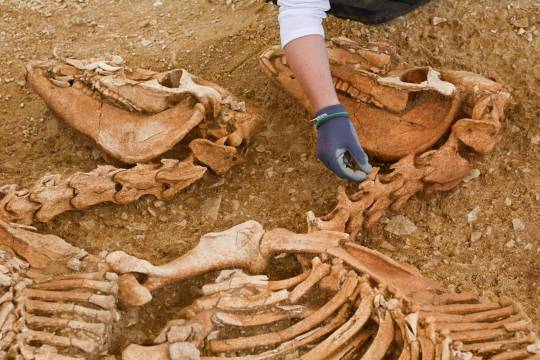
Archaeologists Uncover ‘Astonishing’ Remains of Horses Buried 2,000-Years-Ago
Archaeologists in France have uncovered nine “astonishing” graves containing the skeletons of 28 horses that were buried about 2,000 years ago, though their precise cause of death remains a mystery.
Discovered in Villedieu-sur-Indre, a commune in central France, two of the graves have been fully excavated so far, the French National Institute for Preventive Archaeological Research (INRAP) said in a statement.
The horses have been radiocarbon-dated back to somewhere between 100 BC to 100 AD.
Archaeologists found 10 complete horse skeletons in one pit and two in the other, all carefully placed in the same manner lying on their right flank with their heads to the south.
All these horses were buried at the same time shortly after their deaths, archaeologists said after observing the position of the skeletons and the connections between the bones.
Another grave is situated between these two pits but it contains two medium-sized dogs, both lying on their left side with their heads facing west.
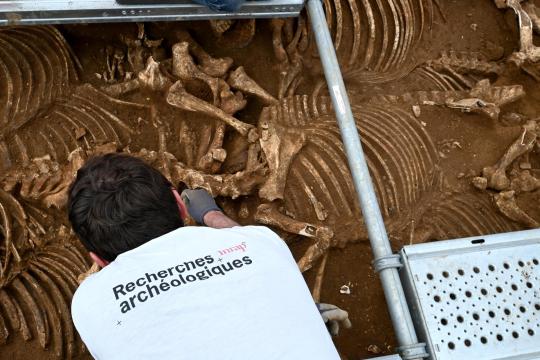
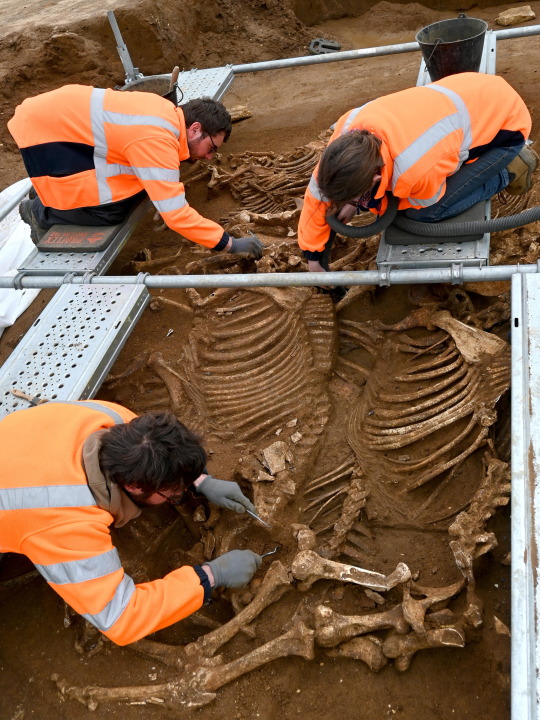
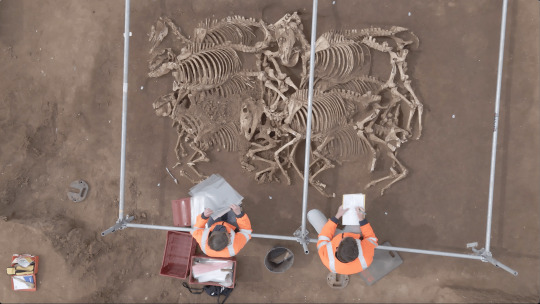
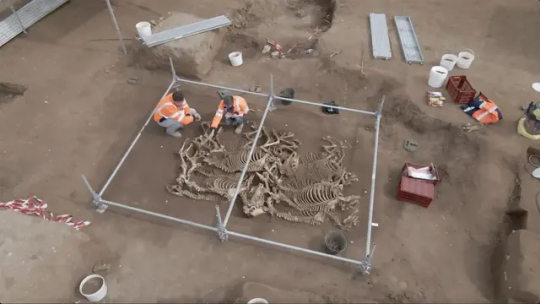
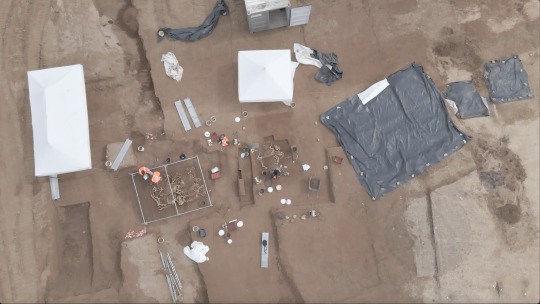
Archaeologists have yet to fully excavate the remaining graves but have already identified a total of 28 horses from the skulls and coxal bones that appear on the surface.
Killed in battle, or ritual sacrifice?
However, the horses’ precise cause of death still remains unclear.
Archaeologists have ruled out an epidemic since there are no foals or mares in these graves; all the skeletons are fully-grown stallions aged over four years old. That leaves, archaeologists said, the possibilities that these horses were either killed in battle or as part of a ritual sacrifice.
When these horses died about 2,000 years ago, there was a fortified Celtic settlement known as an oppidum just a few hundred meters away and this location mirrors that of two other similar horse burial sites that archaeologists had previously uncovered in the same region.
Due to this location, they have hypothesized that the horses’ deaths at the sites could be connected to the battles of the Gallic Wars in which Julius Caesar conquered Gaul between 58 - 50 BC.
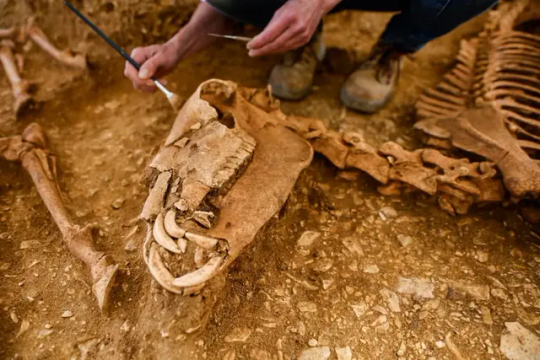
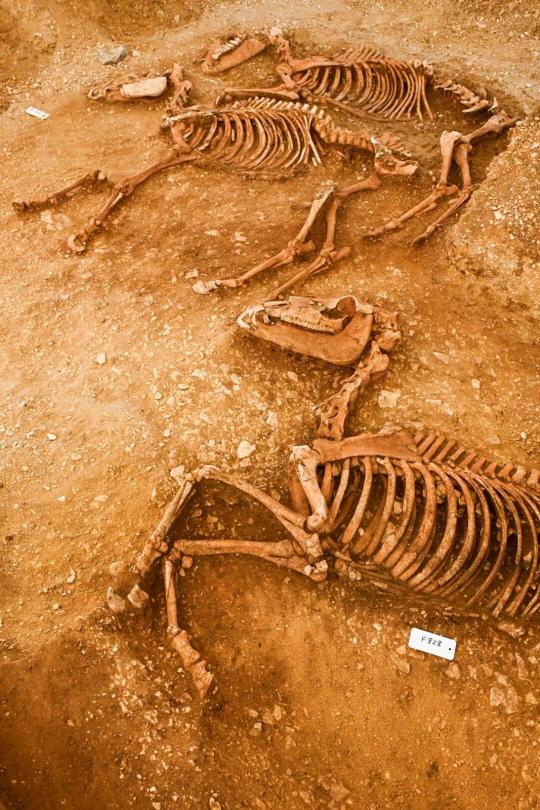
There may be another explanation, however: ritual sacrifice.
“The hypothesis that these animals were sacrificed as part of a complex ritual, of which only a few scraps remain, must also be considered,” the INRAP statement said.
If these horses were indeed buried as part of a ritual rather than killed in battle, the sheer number shows the “importance and extent of the sacrifice,” the statement added.
Other finds at the site, which sits on the slope of a valley, include buildings, pits, ditches and a road that archaeologists dated to the late 5th and early 6th centuries.
By Issy Ronald.
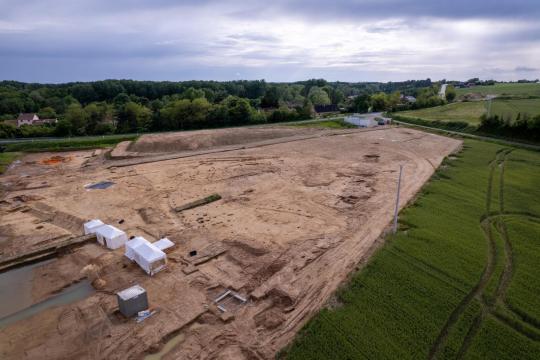
#Archaeologists Uncover ‘Astonishing’ Remains of Horses Buried 2000-Years-Ago#Villedieu-sur-Indre#France#Gallic Wars#Julius Caesar#ancient artifacts#archeology#archeolgst#history#history news#ancient history#ancient culture#ancient civilizations#roman history#roman empire
1K notes
·
View notes
Text
Coin of the Day #238 (12/28/2024)
A rare ancient cast coin…
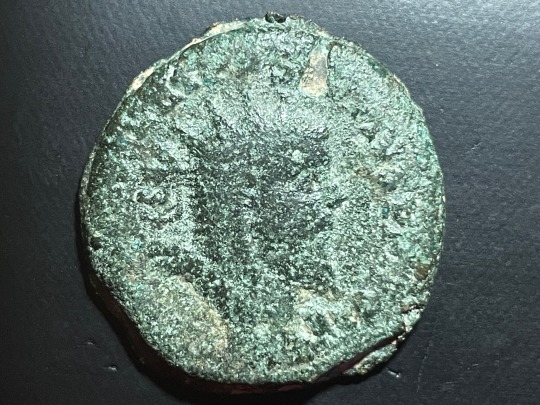
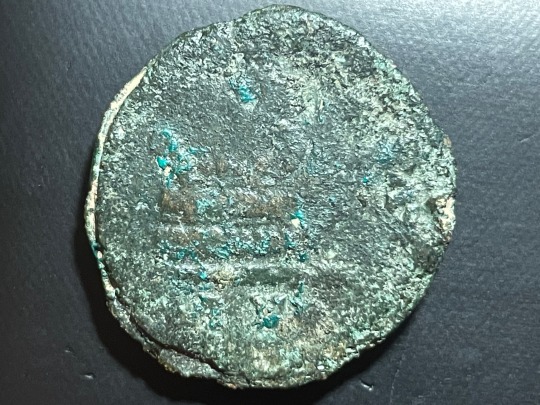
Roman Splinter State - Gallic Empire
AE Cast Dupondius(?) - 26mm 11.05g
Postumus 261 AD
Treveri Mint
Obverse IMP C M CASS LAT POSTVMVS P F AVG
Bust of Postumus right, radiate, draped, cuirassed, from front
Reverse LAETITIA AVG
Galley going left
RIC V 207, Mairat 124
Original cast, hastily made possibly for immediate need of coinage in Gaul
#coin of the day#roman empire#gallic empire#ancient rome#postumus#treveri#roman coins#numismatics#coin#coins#ancient coins
2 notes
·
View notes
Text
The Big Show (Part 2): The Coins
(Sorry for the wait)
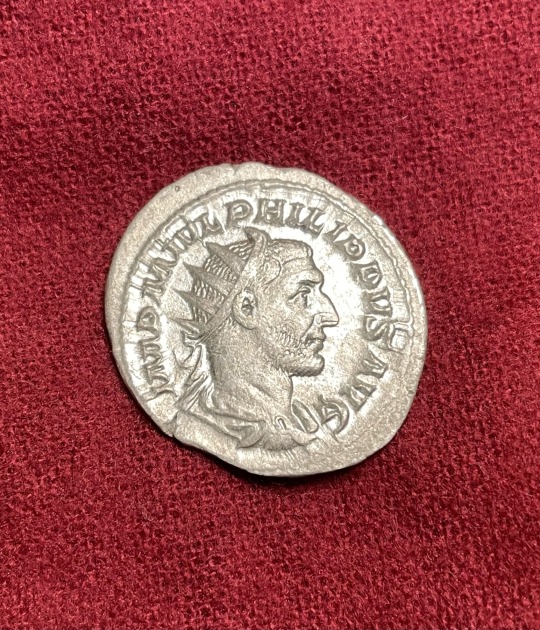
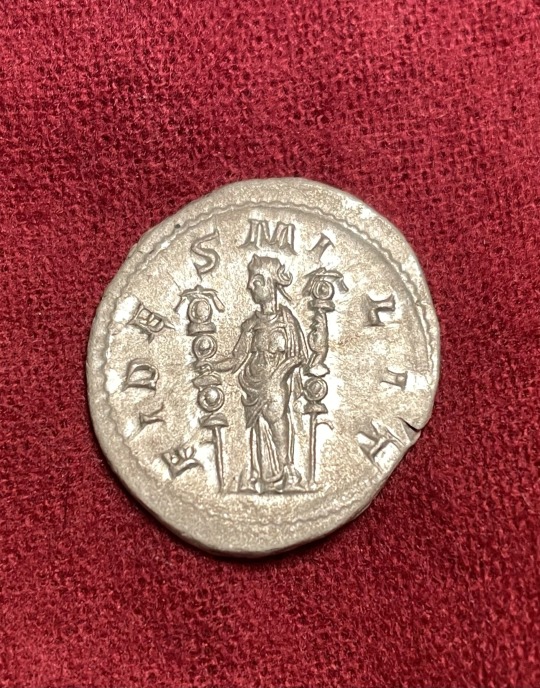
Philip the Arab Bi Antoninianus 244-247 CE Ob: IMP M IVL PHILIPPVS AVG rv: FIDES MILIT "Fidelity to the military" RIC IV Philip I 32 b.
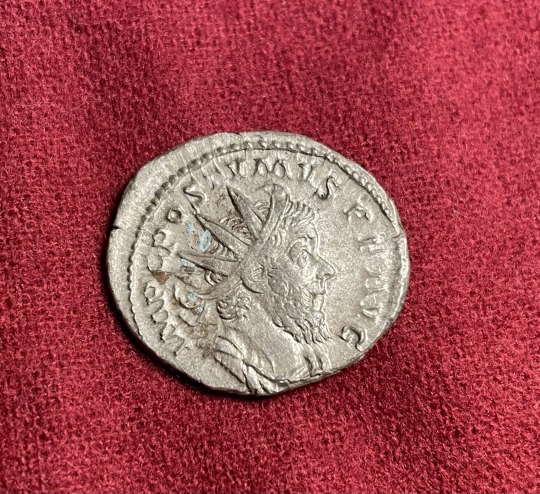
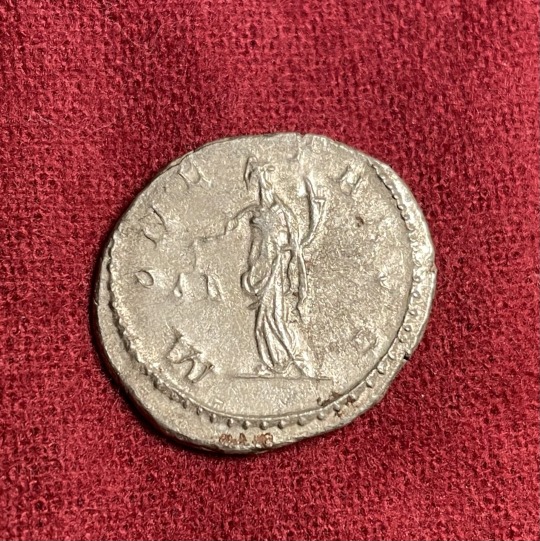
Gallic Empire: Postumus Bi Antoninianus 260-269 CE Ob: IMP C POSTVMVS P F AUV rv. MONETA AVG "the emperor's money" Colonge(?) mint RIC 315.
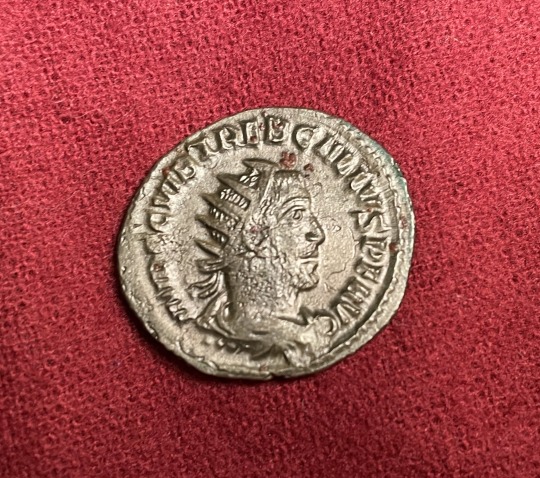
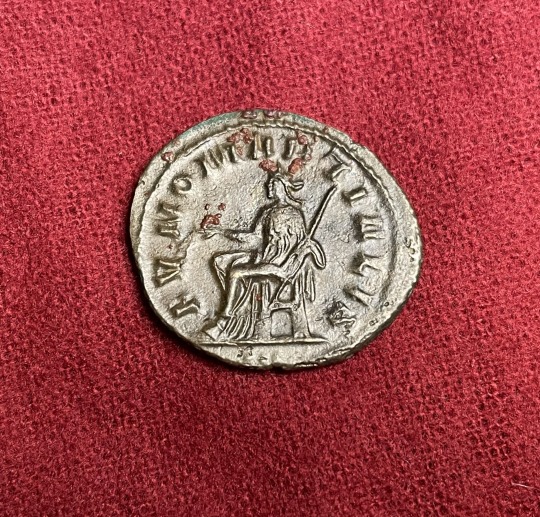
Trebonius Gallus Bi Antoninianus 251-253 CE Ob: IMP C C VIB TREB GALUS PF AVG rv: IVNO MARTIALIS "to Juno, the war-like" Antioch mint RIC IV 83 subtype 6.
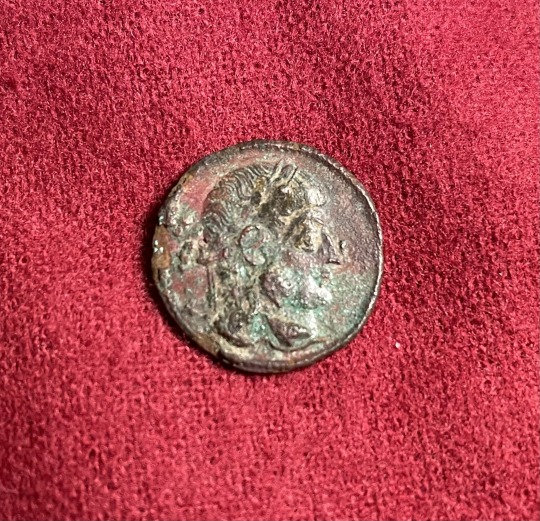
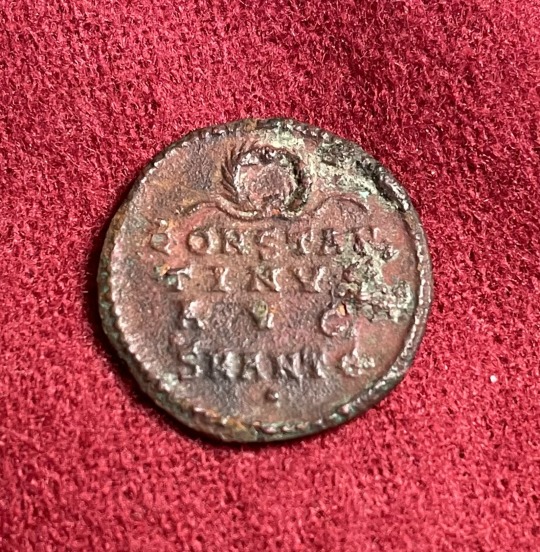
Constantine the Great AE 2/3 Follis 324-325 CE Ob: (Anepigraphic) rv: CONSTAN/TIVS/AVG/SMANTϵ/● Antioch mint, oficina ϵ RIC VII 57.
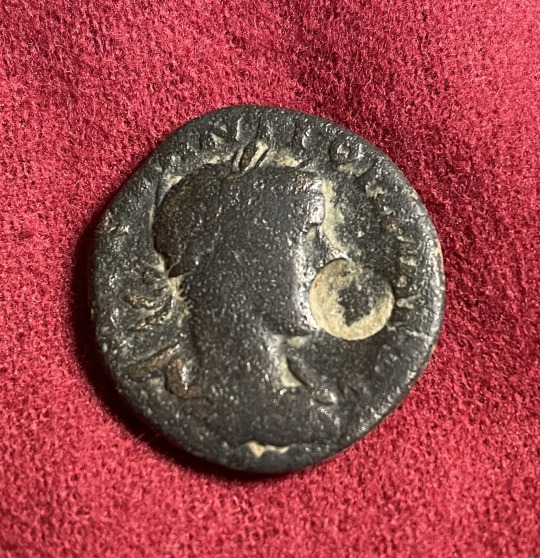
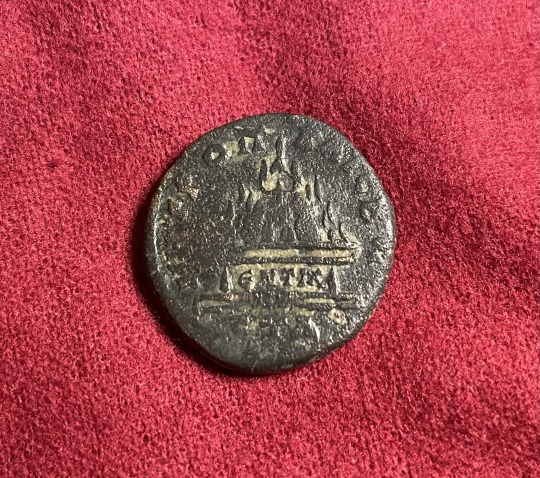
Caesarea in Cappadocia, Gordian III 241 CE AE Ob: AY K M ANT ΓOPΔIANOC rv: MHTPO(Π)(O) KAIC(A) B N εNTIX/εT Δ "of the metropolis Caesarea, twice neocorate, walled, year 4" RPC VII.2 3351 Counterstamp: head of Helios, radiate, GIC 12i.
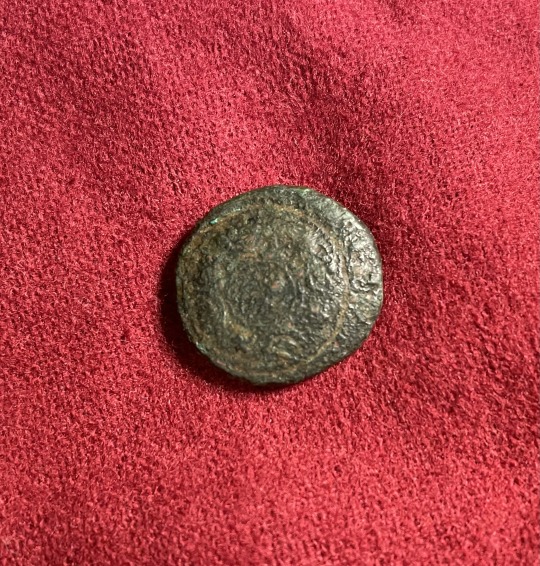
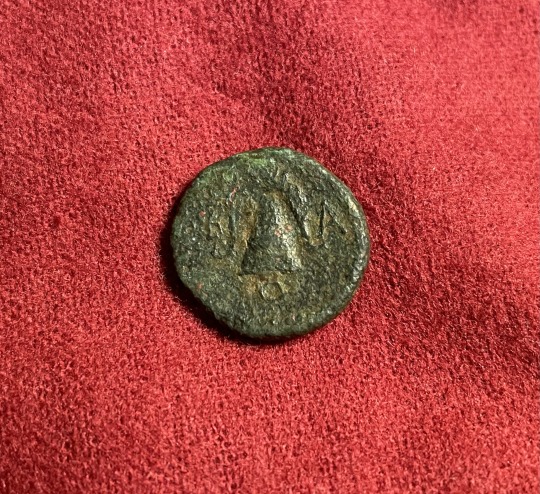
Kingdom of Macedon, Alexander the Great (Postumus) AE Half Unit 325-310 BCE Ob: Macedonian shield rv: Macedonian Helmet flanked by B(AΣIΛEΩΣ) A(ΛEΞANΔPOY) , below, coiled serpent. Price 409.
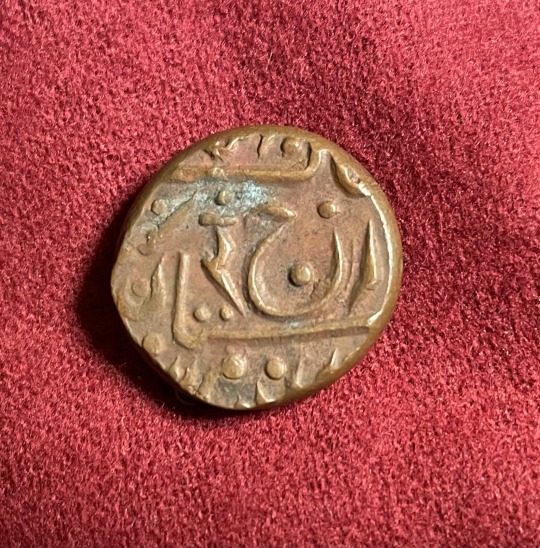
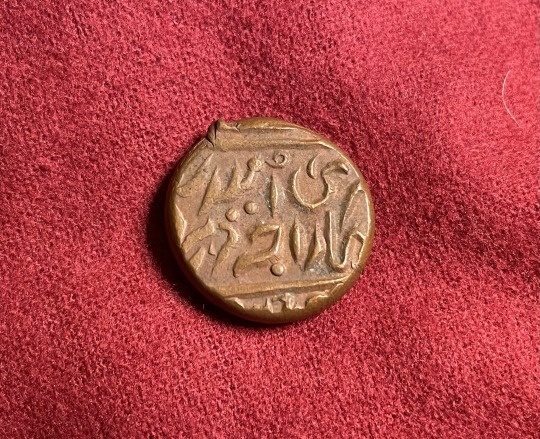
Jodhpur 1/4 Anna, 1939
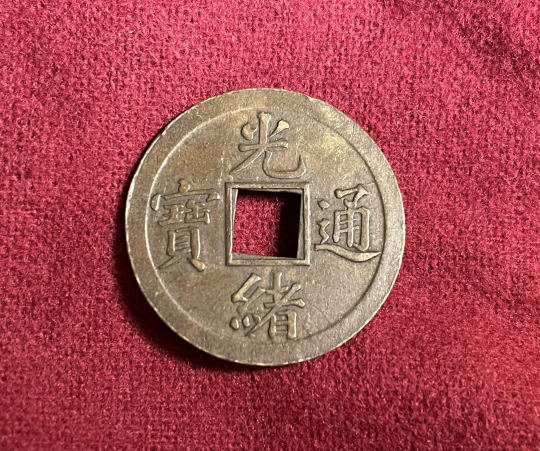
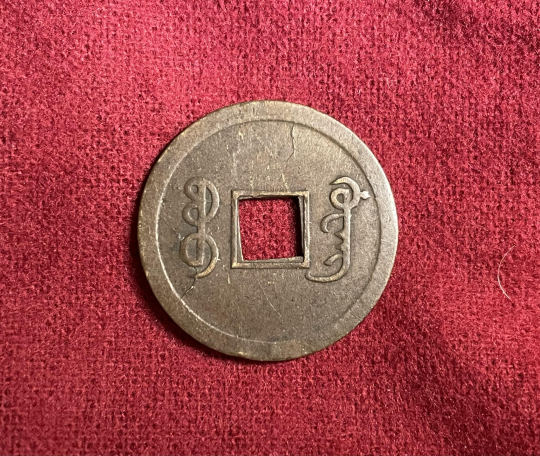
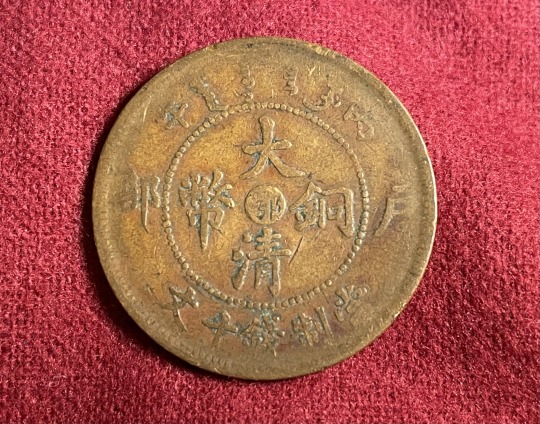
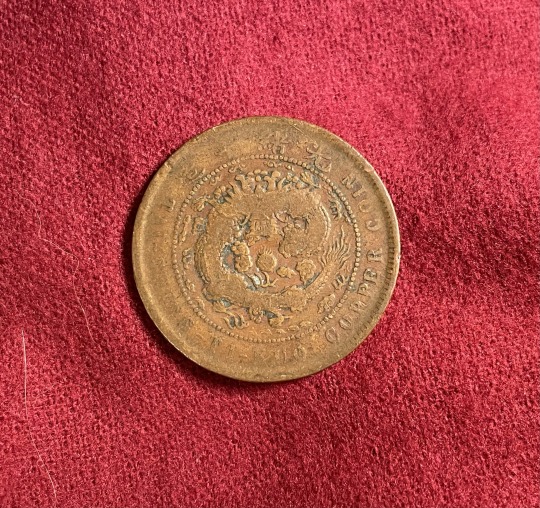
Empire of China Guang Xu Cash style milled/ 5 Cash 1905/6
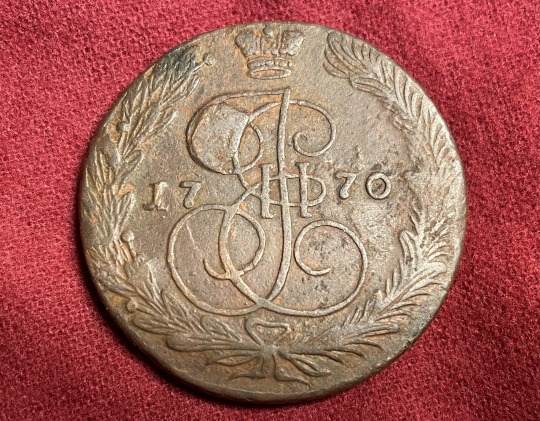
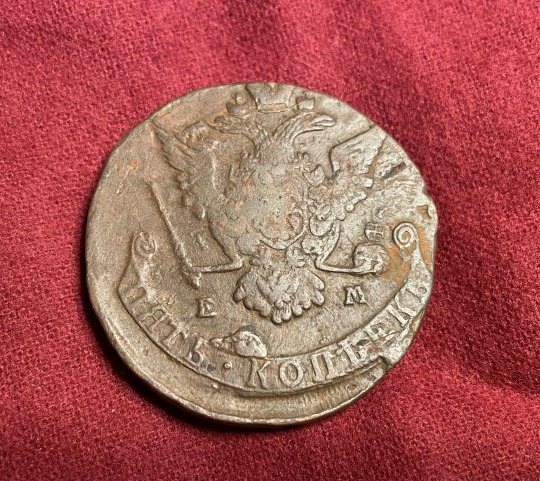
Catherine the Great Russian Empire 1770 5 Kopeks
#ancient coins#numismatics#coins#ancient history#ancient rome#ancient greece#roman coins#greek coins#chinese empire#india#catherine the great#constantine the great#alexander the great#large copper coins
7 notes
·
View notes
Text
The marvelous story of Rouillac
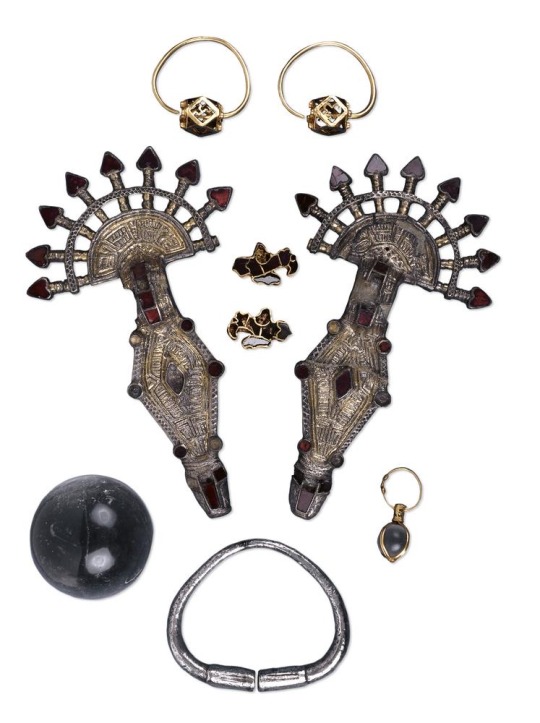
The area surrounding French village Rouillac (dep. Charente, Ar. Cognac) is an Early Medieval unicum.
Of Gallic origin, Rouillac as a village came to prominence due to Roman occupation. Rouillac is likely derived from Rulliacum (domain of Rullius). The area bloomed because of its close proximity to the Via Agrippa. This is visible in the presence of a Roman theatre, bath houses and a Gallo-Roman burial site/sanctuary (located in Bouchauds). Unique finds include a statuette of Epona, a Gallic goddess.
Like most great Roman settlements, the area continued to be inhabited by people after the fall of the (Western-) Roman Empire. The site was inhabited both by Merovingians and Visigoths.
The area continued to be a rich society, shown in the Germanic burial site at Herpes. The site also shows how the Goths and Franks lived in good coexistence with each other.
Rouillac is because of this coexistence the southernmost and westernmost Merovingian village and the northernmost Visigothic village.
The parure above is Merovingian, but shows clear gothic influences (predominantly in the radiate-headed brooches).
The British Museum, London - United Kingdom
Museum nrs. 1905,0520.994
Found in Herpes, Charente - France
#frankish#merovingian#viking archaeology#archaeology#carolingian#charlemagne#field archaeology#viking mythology#merovingian archaeology#germanic mythology#norse mythology#anglo saxon#viking#field archaeologist#frisian#odin#vikings#germanic#germanic folklore#germanic archaeology#wodan#anglo saxon archaeology#history#jewelry#norse
24 notes
·
View notes